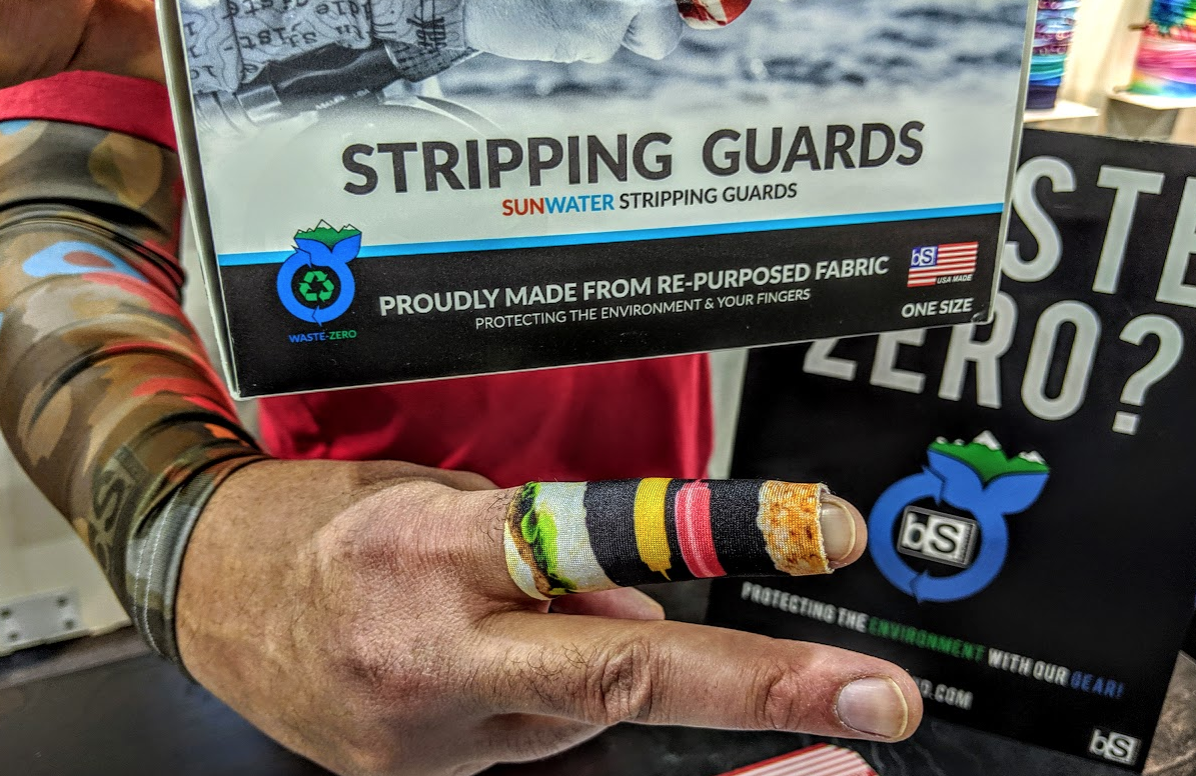Perhaps the overarching theme of the 2019 International Fly Tackle Dealer show in Denver was environmental sustainability. The show itself was a plastic-free event, and according to American Fly Fishing Trade Association President Ben Bulis, there was no cost difference for the association when it came to making this determination.
And companies that displayed their wares at the show clearly made efforts to demonstrate to retailers and to the media their own work at achieving sustainability. Patagonia is perhaps the industry leader in environmental sustainability and activism—the company displayed several pairs of wading boots that had been worn regularly for a year and showed that there’s still quite a bit of life left in them.
“The idea is show that these are the last boots you’ll ever need to buy,” said Steve Duda, who works in Patagonia’s editorial department. “You can get them re-soled, and you get the leather recondition, but they should last you a lifetime.”
Another company that made an obvious effort at demonstrating sustainability at the show was BlackStrap, a TU Business partner and the maker of quality facemasks, balaclavas and other sun-protection gear for anglers and outdoor enthusiasts. In an effort to go “waste zero,” Blackstrap is using its remnant fabric to make things like stripping guides for anglers’ fingers (if you’ve ever received a friction-burn on your digits while strip-setting a big saltwater fish, you know what these handy little stretches of fabric are for), headbands, gloves and the like.
So far, the company has salvaged more than 35,000 pounds of fabric, or the equivalent of 2.2 million plastic bottles.
“We want to continue offering quality products while adding less to the landfill,” said BlackStrap CEO Abe Shehadeh.
It should be noted that BlackStrap is also a big supporter of Trout Unlimited’s work to protect Bristol Bay from the perils of the proposed Pebble Mine.
Other companies adopted the theme, too, demonstrating less waste, more “permanence” when it comes to their products and, frankly, showing support for groups like Trout Unlimited, who work to protect the resources used by the customers of outdoor gear manufacturers.
As former AFFTA board member Tom Sadler is fond of saying, “Protecting fish habitat results in opportunity, which, in turn, results in economic activity.”
This year’s IFTD exposition showed that manufacturers are making the connection between their bottom lines and the protection of our natural resources.



